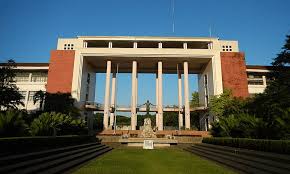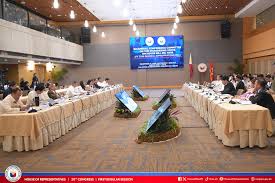The 2025 midterm elections revealed more than just shifting alliances—it exposed a glaring missed opportunity for leadership through innovation. At the heart of that opportunity was the Department of Information and Communications Technology (DICT), a government agency that, if properly empowered and prioritized, could have completely redefined how Filipinos engage with governance, elections, and national progress. As a veteran technologist, I believe this missed opportunity stands out as a landmark failure of the BBM Administration—one that reveals how badly our government lacks technology leaders capable of building the digital future Filipinos have envisioned for decades.
In an age where digital transformation is the cornerstone of national competitiveness, the DICT should have been one of the most powerful arms of the Philippine government. It should have been the lead agency heralding and championing the changes our country desperately needs. With the right vision, President Bongbong Marcos Jr. could have turned it into a force capable of ushering in transparent elections, smart governance, automated public services, and digital inclusion. Instead, it remained ineffective, misdirected, and politically sidelined. The DICT, for lack of a better way to put it, has become almost completely irrelevant. It begs the question: why is it even there?
Imagine an election landscape where every precinct was connected to a nationwide fiber-powered backbone, where electronic voting systems ensured quick, tamper-proof results, and where disinformation could be combated in real-time with AI-driven public education platforms. That’s the kind of future the DICT was supposed to help build—but didn’t.
A truly visionary president would have seen this. He would’ve understood that the future of leadership lies not in gimmicks like 20-peso rice or political patronage through ayuda, but in empowering a digitally connected population. Digital services, if executed well, could have solved decades-long issues like slow ayuda disbursement, fake voter registrations, and bureaucratic bottlenecks. In doing so, BBM could have built a loyal base—not through promises, but through performance. And he could have achieved all of this with a well-crafted and faithfully followed Digital Roadmap, spearheaded by none other than the DICT itself.
In this alternate scenario, the midterms wouldn’t have been about factions and feuds. They would’ve been a referendum on progress. Candidates aligned with a government that had delivered on digital transformation would have been seen as agents of continuity. The electorate would have rewarded those pushing forward with reforms that made everyday life faster, simpler, and more dignified. But what we got was the opposite. Whatever small wins the Duterte Administration had in making government services more accessible seem to be unraveling under BBM. And let’s be honest—isn’t it suspicious that the once-proudly announced “Ease of Doing Business Program,” which DICT spearheaded alongside the DOST and DTI during Duterte’s term, hasn’t even been mentioned during BBM’s administration?
Instead, what we saw was a collapse of credibility. Candidates backed by the administration were trounced. The failure of the Marcos-Romualdez bloc to dominate even a single top-tier race showed that the public no longer believes in superficial promises. This was a rejection not just of personalities, but of a government that refused to modernize.
It didn’t have to be this way. If BBM had taken the lead in building a digital government—with one ID, one platform, one database for all government services—the entire Filipino voting experience would’ve been different. It could have been smarter, faster, and more secure. More importantly, it would have shown the people that the government is capable of keeping up with the 21st century.
The DICT had the potential to become the great equalizer. By expanding internet connectivity to the poorest regions, it could have brought job opportunities, education, and access to information to the most disenfranchised. That alone would’ve created millions of digital allies for BBM—real people whose lives were improved, not by slogans, but by systems. Not with short-term band-aid solutions like ayuda.
With that kind of infrastructure in place, the 2025 election narrative would’ve been entirely different. The conversation would be about policy, not personalities. About innovation, not infighting. The Philippines could have stood as a model in Southeast Asia—not because of PR spins, but because of real, measurable progress.
BBM had the chance to become a tech-first president, remembered not for nostalgia or dynasty, but for revolutionizing how government works. That opportunity slipped. The 2025 midterms made it painfully clear: voters are ready for smart governance. They’re just waiting for someone bold enough to deliver it. The DICT once again has missed a truly great opportunity for setting itself apart to become the most loved and admired Government Departments. How sad!
In the next three years, the question is no longer whether BBM can win elections again. The real question is: can he still win the people’s faith through genuine transformation? If he’s serious about leaving a legacy, it begins by turning the DICT into what it was meant to be—a pillar of a future-ready Philippines. Or will BBM continue to keep the DICT trapped in Digital Oblivion? If so, the new DICT Secretary should have enough courage to prove that his Department can succeed, with or without support from the President.
_________________________
Rafael “Raffy” Gutierrez is a veteran Technology Trainer with over 25 years of experience in networking, systems design, and diverse computer technologies.




